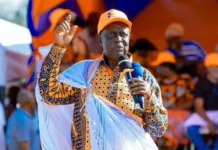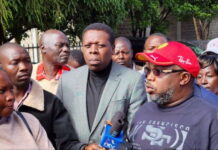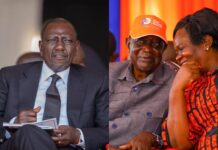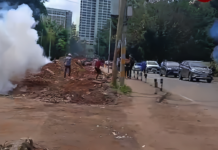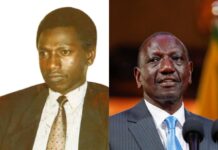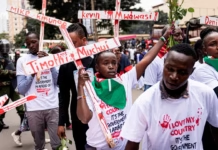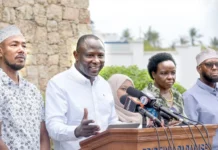Security for various Judiciary personnel has been increased ahead of the start of the presidential petition filed at the Supreme Court.
Judges who will hear the case are among those on the team. According to officials who are aware of the plans, each of the judges and personnel assigned to them has received increased security.
The hearing has been relocated to the Milimani Law Courts, which will only be accessible to those who have been accredited.
Some personnel have been asked to stay in one location, such as apartments or hotels, to facilitate movement to and from the courts.
These include the seven judges and their assistants, who will conduct research and undertake other clerical duties.
Lazarus Opicho, the Judiciary’s head of security, and his deputy, Winfrida Rotich, have been conducting reconnaissance on the upcoming operations to ensure everything runs smoothly.
Opicho stated that they are ready for the event and urged all parties involved to cooperate.
“Litigants, journalists and other users will be directed accordingly. Those intending to attend have been accredited,” he said.
There is a Ceremonial Hall where the proceedings will take place, as well as a Supreme Court Sub-registry where petitions are filed.
Unlike previous presidential election petitions, the Apex Court did not hear the petition from the Supreme Court Building in Nairobi’s central business district.
The Judiciary has already stationed personnel at the Milimani Law Courts to handle the influx of work that is expected to begin as election losers prepare their legal teams.
Two tents have been set up for lawyers and journalists covering the case, which will be live streamed from Milimani Law Court Ceremonial Hall.
Raila Odinga, an Azimo presidential candidate, announced that he will challenge William Ruto’s declaration as president-elect.
The Judiciary stated that petitioners will have 24 hours from the time the petition is filed to serve respondents.
Respondents will have four days after being served to respond to the issues raised and serve the petitioner with their response.
Following that, the Supreme Court will hold a pre-trial conference eight days after the petition is filed, then immediately begin hearing the petition and render its decision within 14 days.
Chief Justice Martha Koome, Deputy Chief Justice Philomena Mwilu, and Justices Isaac Lenaola, Njoki Ndung’u, Smokin Wanjala, William Ouko, and Mohamed Ibrahim are among the seven judges expected to hear the election dispute.
Since their appointment to the Supreme Court last year, Justice Koome and Supreme Court Judge William Ouko have never heard a presidential election dispute.
Justices Mwilu, Lenaola, and Wanjala served on the bench that overturned President Uhuru Kenyatta’s election victory in 2017.










